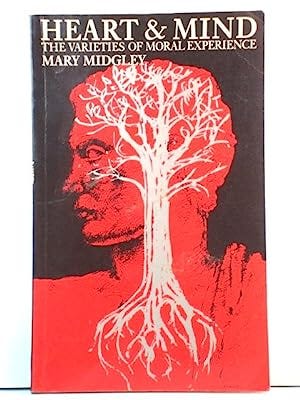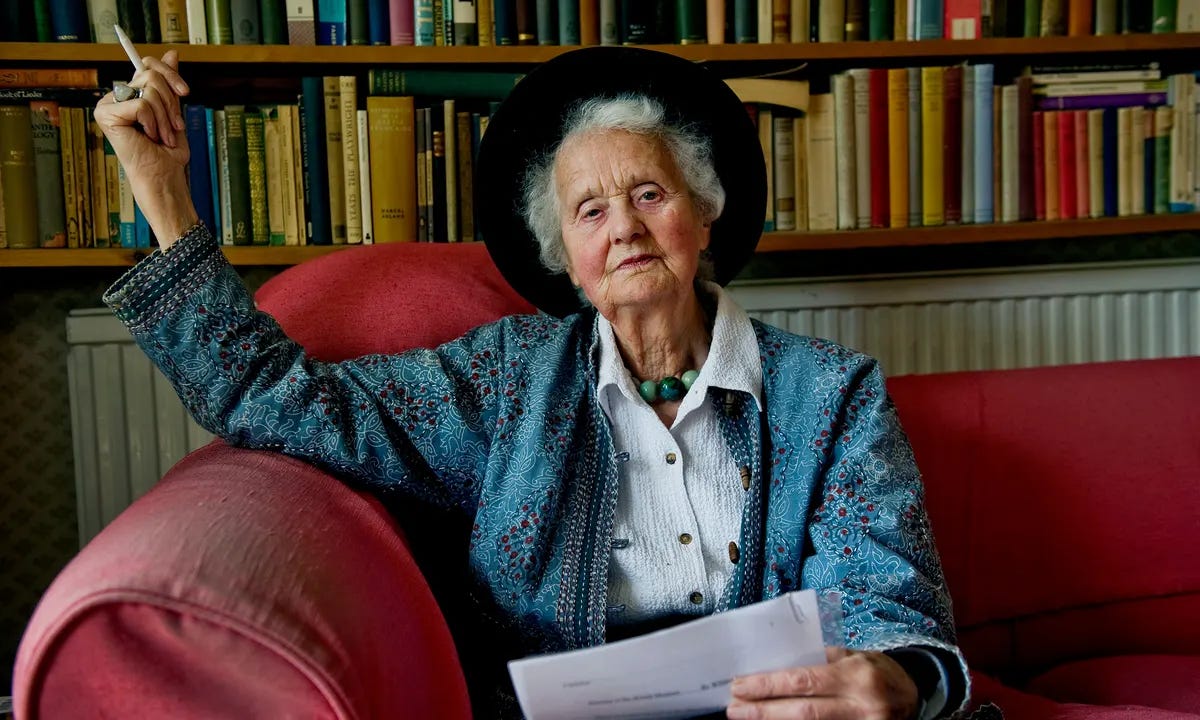Sign Up for Session Two of The Peak Notions Book Club!
There'll be moral philosophy, good fun, and, if we're doing this right, existential crises for all...
“Though it is a philosophical job, however, it is one that has to be done so far as possible in everyday speech. Any technical terminology is downright dangerous here, inviting us to be clever at the expense of being realistic. Dealing with practical choice, we must write, not as shadowy desk-persons, but as the people that we actually are most of the time.”
Mary Midgley, Heart And Mind: The Varieties of Moral Experience
You use moral philosophy every day of your life, but how well are you using it? It’s concerned with the nature of morality, yes. But what that means — for us, in our daily lives as people who find ourselves infuriatingly without toilet paper even though we’ve already sat down, worry about the people we love, scoff at unfeasibly high electricity bills and try not to call our colleague a ‘suppurating boil on the arse of other people’s efficiency’ in our weaker moments— is that it is concerned with the theories we use to make decisions about what we ought to do, and why we ought to do it.
Chidi from ‘The Good Place’ is a moral philosopher who is so concerned by the ethical implications of every decision that he ends up in hell. Literally.
Once you’re fed, healthy and physically safe, I can’t think of what could be more practical or important than asking how we should live. Despite appearances, moral ‘truths’ aren’t obvious and they’re generally not even considered universal — this fact is at the centre of a lot of disputes based on far-reaching practical questions over what constitutes infidelity, or how household labour ought to be divided, whether to baptise a child when you’re a lapsed Christian yourself, how far your duty to your parents goes (if you have one at all), or whether and when it’s permissible to lie. Moral philosophy is not just lofty theory (though it can be that too) — it’s the exploration of the ideas that underlie our deepest-held beliefs, both collectively and individually, about how we should behave and what the rules for everyone should be. That’s practical, high stakes stuff.
Philosopher Mary Midgley, photographed in 2014, at the age of 95
Philosopher Mary Midgley phrased it neatly:
“All this matters because many things on the current intellectual scene tend to make us disconnect feeling from thought, by narrowing our notions of both, and so to make human life as a whole unintelligible.”
With all that in mind, session two of the Peak Notions Book Club is getting into some compelling, accessible moral philosophy. We’ll do this by reading the excellent Mary Midgley’s Heart and Mind: The Varieties of Moral Experience. Her entertaining and compassionate writing on human nature and ethics is a truly lovely place to start if you’re interested in philosophy but a bit nervous to dip your toe.
Midgley studied at Oxford during the second world war, crediting the fact that most of her male compatriots were forced to leave and fight with generating the unfortunate but unique circumstances under which her cohort of female philosophers could flourish intellectually. Apart from Midgley, these included Philippa Foot (creator of the famous/infamous ‘trolley problem’), Iris Murdoch and Elizabeth Anscombe, who was, incidentally, born in Limerick in 1919 (also the birthplace of Terry Wogan, me, and a three-legged dog called Spicebag who belonged to my friend until his sad death in 2020. RIP Spicebag). Anscombe likely never met Spicebag, who was born about ninety-four years after her, but her father, who served in the British army, was stationed there. Anscombe’s, that is. Not the dog’s.
Mary Midgley never finished her PhD, though she did become a professor of philosophy (it was back when you could do that). Ever a delightful concatenation of considered and giving no f*cks, she wrote in The Guardian that she thought PhDs often made people worse at thinking overall :
“But that close work doesn't help you to grasp the big questions that provide its context - the background issues out of which the small problems arose. I think there ought to be a corrective course after the PhD - a course in bypassing details to look at the whole landscape.”
Thrillingly, Midgley described philosophy as “plumbing”. Her irreverent but serious approach is why she is the ideal philosopher to start with for our next session of the book club after beginning with some fiction — George Orwell’s Animal Farm — last month. Moral philosophy is all about ‘the background issues out of which [problems arise'], so I’m very excited to discuss Midgley’s work with you and ask some big - and small - moral questions together!
The book club is my way of thanking paid subscribers who keep Peak Notions afloat, and of building community here. It takes research, work, and admin (which is not my forte oh my goodness!), so for that reason it is open to paid subscribers only. There are 15 spots available for the second Peak Notions Book Club session, which takes place on Zoom at 8:30pm BST on Thursday August 3rd. The Book Club is a perk for the paid subscribers who keep Peak Notions going and fund the work that I do. You can get all the details and put your name on the list via the sign-up sheet at the bottom of this page.





